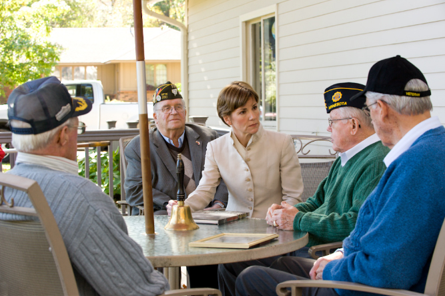at 612-315-3037 or
www.swansonhatch.com

Most charities are reputable organizations, but some are not. Nationwide, billions of dollars are believed to be siphoned each year to organizations that do little but enrich the lives of their promoters through misleading fundraising drives. In short, some charities scammers tug at the heart strings but grab for the wallets. One thing these organizations have in common: sincere names and laudable-sounding goals. Sham charities reach donors by telemarketing, direct mail, email and door-to-door communications. Many create snazzy websites with duplicitous names that connote meaningful support for veterans, cancer patients, fallen police officers, the homeless, hurricane victims, and sick children. In some cases, the “charity” becomes nothing more than a ruse through which a private fundraising company siphons off the contributions.
Associated Communities, Central Processing Service and Foundation for American Veterans. In 2016, Attorney General Lori Swanson filed a lawsuit against Associated Communities, Inc. (“ASC”) and Central Processing Services, LLC (“CPS”). The two fundraising organizations solicited donations for a charity named Foundation for American Veterans (“AMF”). Between 2010 and 2016, ACS and CPS raised more than $925,000 from 28,000 Minnesotans.
FAV claimed that its primary mission was to assist veterans with clothing and assistance at VA Hospitals, homeless shelters and various other programs. Its two employees worked out of their homes. From 2010 – 2014, FAV reported total revenue of about $38.5 million. FAV paid ACS and CPS over $27 million between 2010 and 2014. ACS and CPS were paid this money through intense telemarketing campaigns, reportedly calling at least one Minnesotan over 40 times in a four-month period in 2015.
The lawsuit alleged that the fundraising companies used high pressure tactics to “close” the donation. If a prospective donor asked to be put on a “do not call” list, the solicitor asked the donor whether he was “grateful for the sacrifices that disabled veterans made for our country.” In some cases, the solicitor pretended that the donor had previously made a pledge and that the solicitation was simply to follow through on that pledge. In other cases, the companies sent “pledges” to donors that had not been agreed to by the donors.
In 2016 Swanson obtained a court order to temporarily enjoin the companies from operating in Minnesota. The injunction was extended for two more years with an agreement that neither the companies nor their officers would solicit in Minnesota without strict adherence to certain transparency and regulatory requirements. In 2021, the Federal Trade Commission and a coalition of states sued the fundraising companies: https://thenonprofittimes.com/regulation/feds-states-shut-down-charity-telefunding-fraud/
American Federation of Police and Concerned Citizens, Inc. is a Florida operation. Donors were told that their donations would be used for “police family survivors.” In fact, less than 10 percent of the funds went to help police families. Much of the rest was spent on professional fundraisers. The Minnesota Police and Peace Officers Association stated that it had no record of any help provided by the charity to the family of a fallen police officer in Minnesota.
Help the Vets, Inc. As part of a nationwide crackdown on fraudulent charities claiming to help veterans called “Operation Donate With Honor,” Swanson filed a lawsuit against Help the Vets, Inc., a Florida charity that raised more than $370,000 from more than 2,000 Minnesotans. The organization claimed the charity supported veteran’s medical care, a suicide prevention program, and financial assistance. In fact, the lawsuit alleged that the organization only distributed hotel and chiropractic vouchers it had already received for free. The charity received over $19 million in contributions in 2016 and spent $16 million of it on “grants, salaries and other expenses.” The lawsuit alleged that the organization was unable to substantiate the help it claimed to provide to veterans.
In 2018 Swanson filed five lawsuits against pseudo-charities that claimed to help veterans. This is on top of numerous other lawsuits previously filed against other charities touting their connections to veterans and police officers. According to an AARP survey, nearly one-third of vets and military veterans have lost money to scammers pushing fake veteran and military charities. AARP warns that, to sound convincing, scammers often use military jargon and specific government guidelines to craft a cause or story that sounds genuine. Once a sense of camaraderie is established, the scammer may then pitch a fake charity, a false promise for free medical equipment or a variety of other scams targeting military veterans.
REFERENCES: